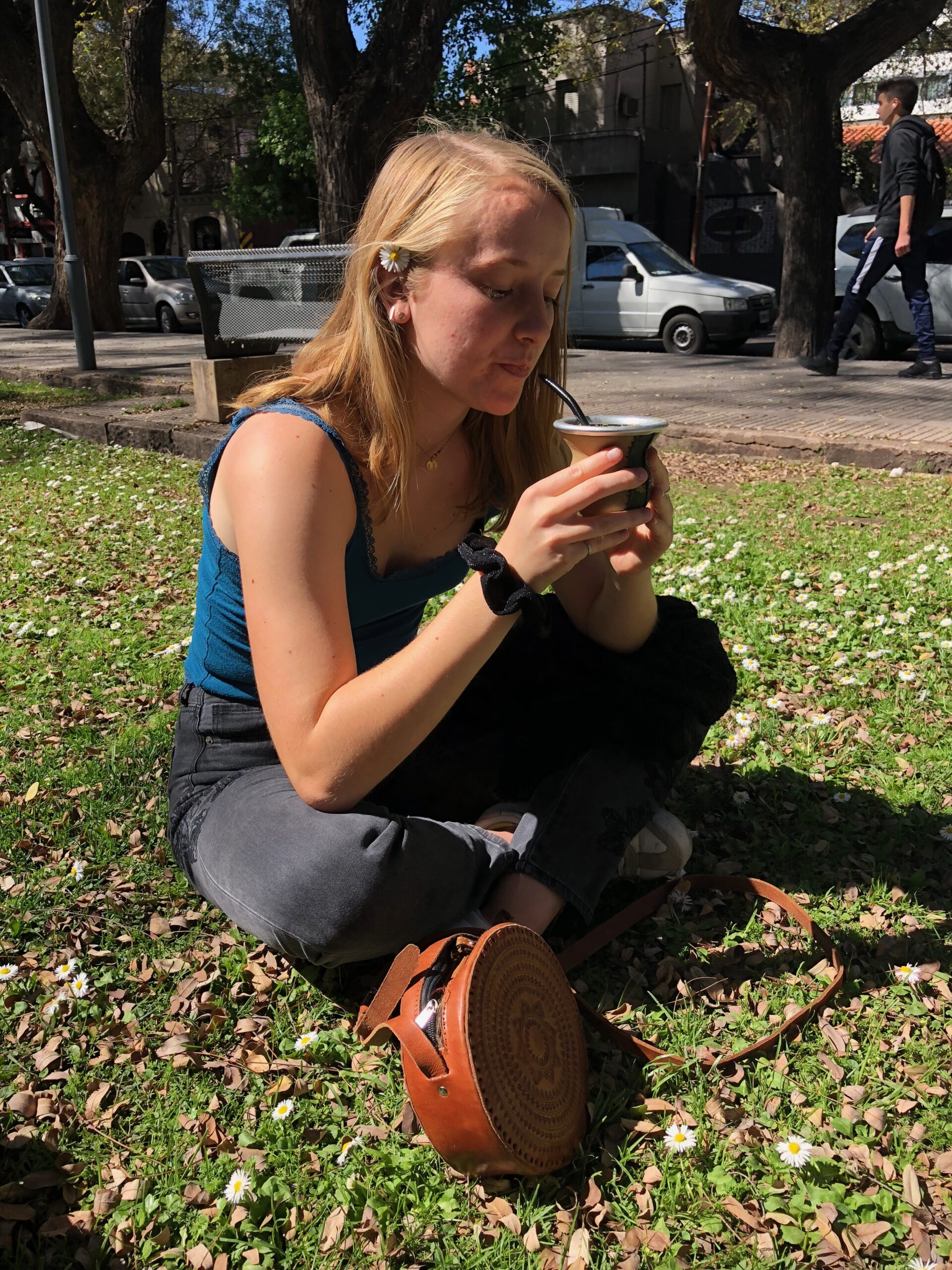Navigating My Identity as a White Woman Abroad


Looking back on my expectations
In the United States, one of the many privileges that I enjoy as a white female is the ability to blend in with the majority. When traveling, that’s not always the case. Because I have fair skin and blonde hair, in Argentina I have found that I’m often the object of prolonged stares and frequent calls, friendly or otherwise.
Coming to South America, I was prepared to be hyperaware of my racial identity for the entire semester, even though Argentina’s history with immigration is very similar to that of the United States; 19th-century Argentina saw an influx of European immigrants and a government-sanctioned crusade to murder native populations. What results is a country made up of over 95% immigrants, predominately from Spain and Italy.
Although most Argentines have European ancestry, few have blonde hair like I do. So though theoretically they don’t know that I’m not from Argentina until I speak, my blonde hair is unusual here and still results in plenty of unwanted stares.
Living in a small town in the Midwest, I blend in easily at home with my blonde hair and light skin. I feel comfortable in most situations, and I always see people who look like me. I don’t get ogled when I walk down the street or judged when I mess up the language. Thus, moving here has been a bit exhausting in comparison, as I’m hyperaware of my difference every time I step outside of my house.
Navigating my difference
One of the largest culture shocks for me has been catcalling. I’m not used to living in a big city, so I’m automatically on edge at night, especially when walking alone. And when a stranger in the street stares at me for too long or says something to me, I feel unsafe. IFSA warned us before we came that catcalls are a part of Argentine culture, but many people here will tell you that amount of catcalling has greatly diminished due to the feminist wave that the country has experienced in the past few years. However, both my friends on the program and Argentine women still complain that the problem has not gone away.
Men also like to approach me on the street and speak English. In a restaurant or bar setting, this behavior is at most slightly irritating, and at best a good opportunity to make friends. People are curious, and I benefit from the experience as much as they do; in fact, my ability to improve my language skills depends on other people’s friendliness. But when I’m walking down the street alone on high alert, the last thing I want is for a man to approach me and try to practice his English.
However, I have to remind myself that people are excited to see difference, and I came here to explore the differences between us. They genuinely want to make friends with me. I’m not accustomed to giving strange men on street corners my phone number or Facebook profile name, but most people have only positive intentions.
It’s important to note that although I feel uncomfortable sometimes because of the way that I look, I’m still in a position of power. Men who catcall me on the street do so because they consider me exotic and “hermosa,” not because they see themselves as above me. And within the context of Argentine culture, many men still consider catcalling a compliment – though many women are working to change that.
What I’ll take away
Even though my friends and I are annoyed when waiters or bartenders persistently speak to us in English, they’re doing so because they’re curious about our culture and want to meet us. We don’t encounter xenophobia like many foreigners in the US; rather, people are thrilled to learn about the differences between us.
It can be unsettling to walk down the street and know that people can immediately sense that you don’t belong, but it teaches you a lot about tolerance and empathy. In my everyday life in the U.S., it’s unusual for me to stand out, and being hyperaware of my whiteness every day in Argentina has been a big adjustment for me.
These feelings are difficult for me to express right now. Especially this past week, as I’m constantly scrolling through my news feed to stay updated on the Kavanaugh confirmation hearing, I have little patience for men who tell me I should take it as a compliment when a stranger catcalls me instead of feeling unsafe. But facing experiences like this one helps me to learn more about my identity in a global context. I plan to come back to this post when I return home to truly be able to process my feelings. Until then, I’ll continue to observe my surroundings with a critical eye and learn as much as possible to take back with me.
Emma H. | English literature and Spanish major | DePauw University | Argentina | Fall 2018 | IFSA International Correspondent